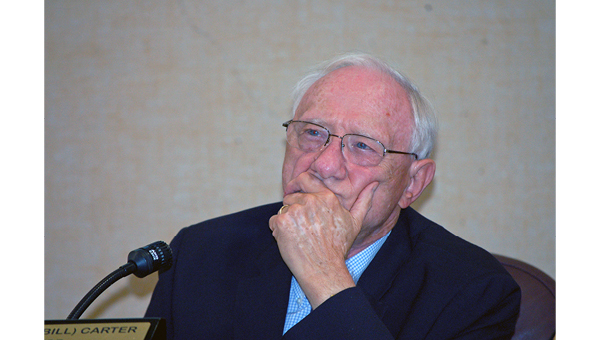President of TN ANS responds to letter suggesting answer to state’s supposedly anesthesiologist shortage
Published 10:18 am Tuesday, January 21, 2025
|
Getting your Trinity Audio player ready...
|
To the Editor:
A recent article published on January 8 titled “Could legislation solve the state’s anesthesiologist shortage?” reminded me of the fable “The Boy Who Cried Wolf.” Those interviewed for the article (all proponents of AAs) claimed that Anesthesiologist Assistants, a provider not currently authorized to practice in Tennessee, were the answer to anesthesia staffing shortages in the state. But if the state’s short on anesthesiologists, how can an AA help? In short, they can’t. Where there’s no physician anesthesiologist, there can be no Anesthesiologist Assistant. Let that sink in – if you don’t have anesthesiologists, you don’t have AAs.
So why all the fearmongering in the Jan. 8 article? Because physician anesthesiologists and AAs want people to believe there’s a shortage that might delay surgeries and other procedures to force state lawmakers to grant AAs the right to practice in Tennessee. The thing is, for the last two years efforts to pass AA licensure and practice legislation have failed, so what’s different this year?
Trending
The article suggested that AAs and CRNAs are interchangeable, saying both can deliver anesthesia. But here’s the thing, they’re not the same. AAs are inflexible providers who must practice under the direct supervision of an anesthesiologist that do not have to have a healthcare background before going to AA school. AAs are not physicians. AAs are not advanced practice nurses. AAs are not anesthetists. They are assistants – exactly what their title denotes! CRNAs are advanced practice nurses who receive training and education to be autonomous anesthesia providers i.e. They don’t have to be supervised by an anesthesiologist. In the 20 states where AAs are allowed to work under an anesthesiologist, their compensation in addition to the compensation of the highly paid anesthesiologists increases patient and facility costs considerably. Further, the inability of AAs to fill positions in facilities that don’t employ anesthesiologists means they cannot ensure patients access to care in rural and medically underserved areas. In Tennessee, that’s most facilities across the state!
We’ve heard anecdotal claims of shortages over and over again by proponents of AA licensure but not actual evidence on anesthesia provider availability or resource allocation or even about who’s actually delivering anesthesia versus supervising. In Tennessee, there are currently 3,094 licensed CRNAs practicing across the state in every setting where anesthesia services are delivered and seven schools of nurse anesthesia in the state, graduating more than 180 new CRNAs annually and more nurse anesthesia programs coming online. So is there a staffing shortage, or a failure to implement staffing models that maximize resource allocation and allow both physician anesthesiologists and CRNAs to practice to their full scope of training and education?
Finally, there’s the numbers game. Even if the addition of AAs was a value-added proposition, there are only 3,400 AAs practicing in 20 states and fewer than 300 new AAs graduating each year across the entire country. There simply aren’t enough to go around! Comparatively, Tennessee’s seven nurse anesthesia educational programs produce more than 180 new nurse anesthetists into the anesthesia workforce annually, many who continue to work in the state after graduation.
The more effective and efficient solution is for facilities and anesthesia groups to implement anesthesia staffing models that enable both physician anesthesiologists and CRNAs to practice to their full scope of training and education, not relegated to only supervising other hands-on anesthesia providers. By fully utilizing the capabilities of our existing CRNA and physician anesthesiologist workforce, any discussion on adding an expensive, less-qualified anesthesia provider would cease.
The bottom line is that healthcare policy decisions should be based on evidence, not anecdotes. If the pro-AA camp has such evidence, they should reveal it. If not, they should stop crying wolf.
Stephen Finder, DNP, CRNA
President
Tennessee Association of Nurse Anesthetists





